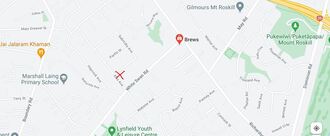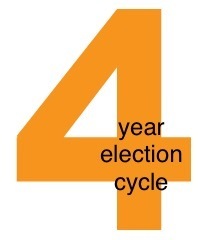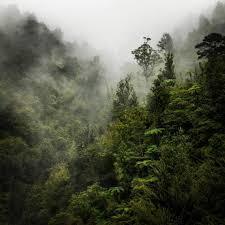-
Asylum 4 Assange in AotearoaAssange's detention and the charges against him threaten press freedom around the world, and therefore threaten our right to know what is going on and democracy itself. We must call out this injustice and offer protection to Assange. Doing so will have New Zealand be a leader on the global stage for press freedom, peace and transparent democracy.1,042 of 10,000 SignaturesCreated by Aotearoa 4 Assange

-
We want more homes for all in Wellington - pass an ambitious Spatial PlanWe have a crisis. Wellington can be a city built for people – with thriving communities, green spaces, and well designed homes and buildings that improve everyone’s lives. But Wellington’s housing crisis is hurting the people who live here. Decades of inaction mean house prices and rents are out of control, while badly maintained properties rot from underneath us. People are being priced out of the city, spending hours each day commuting while the city sprawls and our emissions rise. This crisis is different for everyone. Migrants, the LGBTQI+ community, and Pacifica & Māori are discriminated against in the rental market. Disabled people have very little choice of accessible homes. Everything is too expensive. We need more homes, but the Council hasn’t listened Last year, the Council asked the public for feedback on its 30-year Spatial Plan to make space for more housing. It didn't go far enough. The housing crisis needs serious long-term solutions like drastically increasing the number of homes. So we told them we needed more townhouses. More apartments. More homes close to where people work, live, and play. We asked them to make it easier to demolish bad quality homes and build new ones by reducing the protections on colonial character houses - these “character” houses are overcrowded, falling apart, and making people sick. They push out the real character: our young people, renters, and creatives who make this city great. The Council didn’t get feedback from everyone in Wellington. They heard a lot from homeowners and people with money who benefit from the status quo. But what about everyone else? 84% of young people (18-24) told the Council they want more housing and demand more ambition. The Council should be listening to the people who are experiencing the housing crisis, not the loud few pulling the ladder up behind them. We are asking the Council to do the right thing. The Spatial Plan should allow Wellington to plan for the future so that new generations of Wellingtonians can share the city we love. But to create that city, we need our Council to act. Now’s our chance. Ngā mihi nui, A City for People, Generation Zero, and Renters United We have come together to achieve a long-term solution to our city’s housing crisis. Contact: [email protected]1,408 of 2,000 SignaturesCreated by Generation Zero
-
Initiate Māori Wards for Manawatū!Fulfilling Te Tiriti o Waitangi responsibilities requires partnerships between Maori and the Crown. This forms the basis of the amendments to the Local Electoral Act 2001 which allows all local government authorities to establish Māori wards or constituencies to provide for Māori representation. A Māori ward can give Mana Whenua a rightful seat at the council table as a Te Tiriti partner. The council that represents our entire district currently does not have any Māori sitting alongside them yet they continue to make decisions for Māori. This does not provide for tino rangatiratanga. We want fair representation for all people in the Manawatū District. Matauranga Māori, Tikanga Māori - Māori knowledge, customs and perspectives are hugely beneficial in decision making when considering community care, sustainable land use, conservation practices, climate crisis responses, enterprise, economic development, tourism, and the protection of vulnerable members of society. Their inclusion at Council through Māori representatives is an expression of the active protection of taonga (Māori treasures) and leads to better kawanatanga or good governance. When engaging with Council, Iwi have always demonstrated their position and willingness to be inclusive and considerate of all members of the wider community. The councillors who voted no or wish to defer Māori wards stated a number of perspectives, but the common reason was the 2018 referendum to overturn the 2017 decision to establish Māori wards. In February, the law that enabled this referendum and others like it was thrown out by Government, as it was discriminatory & racially biased. It is therefore discriminatory & racially biased to use this referendum as an argument. In addition, that referendum had a voter turnout of 44.47%, meaning the 'majority' who voted NO to a Māori ward represents just 34% of voters in the Manawatū District. 66% of our District did not offer their opinion in that referendum. Let our Mayor and Deputy Mayor, who voted to defer on 6 May and intend to vote again to defer on 20 May, know that you want them to CHANGE THEIR VOTE! ***This petition has been set up by an individual, to gather additional support from wider constituents in support of the Iwi collective Te Kotui Reo Taumata. While this petition is not administered by Te Kotui Reo Taumata, their representatives have contributed to the content of this page. The heading photo on this page is attributed to Stuff.co.nz*** Please only sign this petition if you are a resident or on the electoral roll in the Manawatū District. Check this map to see the District Boundary https://maps.mdc.govt.nz/IntraMaps90/default.htm Media Links Scoop Iwi collective walk away from Partnership with Manawatū District Council until further notice https://www.scoop.co.nz/stories/PO2105/S00071/te-kotu Stuff https://www.stuff.co.nz/pou-tiaki/300304206/hundreds-of-people-join-historic-march-for-mori-wards-in-manawat Waatea News Manawatū Council faces backlash https://www.waateanews.com/waateanews/x_news/MjcyODE/Paakiwaha/Manawatu-Council-faces-Maori-backlash Waatea News Manawatu iwi give council taste of backlash https://www.waateanews.com/waateanews/x_story_id/MjcyNzY=/Manawatu-iwi-give-council-taste-of-backlash Stuff Manawatū iwi to protest council over Māori wards decision https://www.stuff.co.nz/pou-tiaki/300303747/manawat-iwi-to-protest-council-over-mori-wards-decision Waatea News Manawatū council vote slight on mana whenua https://www.waateanews.com/waateanews/x_news/MjcyNTY/Paakiwaha/Manawatu-council-vote-slight-on-mana-whenua Scoop Manawatū District Council Defers Māori Ward Decision Until 2023 https://www.scoop.co.nz/stories/AK2105/S00141/manawatu-district-council-defers-maori-ward-decision-until-2023.htm Stuff Māori Wards vote may be close as Manawatū councillors split over issue https://www.stuff.co.nz/manawatu-standard/news/300276382/mori-wards-vote-may-be-close-as-manawat-councillors-split-over-issue The Daily Blog & Scoop Manawatū District Council Must not defer Māori Wards to 2024 - Green Party https://thedailyblog.co.nz/2021/05/12/manawatu-district-council-must-not-defer-maori-wards-to-2024-green-party/ RNZ Hundreds protest Māori ward delay in Manawatū https://www.rnz.co.nz/news/political/442339/hundreds-protest-maori-ward-delay-in-manawatu Stuff Māori kicked in the guts over failed Māori ward bid in Manawatū https://www.stuff.co.nz/pou-tiaki/300300994/mori-kicked-in-the-guts-over-failed-mori-ward-bid-in-manawat Scoop Local authorities urged no to wait for education on Māori wards https://www.scoop.co.nz/stories/PO2105/S00093/local-authorities-urged-not-to-wait-for-education-on-maori-wards.htm Stuff Māori ward in Manawatū District only pathway to an inclusive democracy https://www.stuff.co.nz/manawatu-standard/opinion/300303919/mori-ward-in-manawat-district-only-path-to-an-inclusive-democracy Te Ao Māori news Manawatū Council vote against Māori wards dishonours Treaty partnership - Teanau Tuiono https://www.teaomaori.news/manawatu-council-vote-against-maori-wards-dishonours-treaty-partnership-teanau-tuiono Te Ao Māori news Mayor backs down in face of hikoi protesting Māori wards delay in Manawatū Te Pāti Māori backs hikoi protesting Māori wards delay in Manawatū https://www.teaomaori.news/mayor-backs-down-face-hikoi-protesting-maori-wards-delay-manawatu Scoop Hikoi to Manawatū District Council gains momentum https://www.scoop.co.nz/stories/AK2105/S00206/hikoi-to-manawatu-district-council-gains-momentum.htm Te Karere Response to Manawatū District Council’s deferral of Māori wards https://www.youtube.com/watch?v=r1t6SBlHxOg Waatea news Manawatū chokes on Māori ward decision https://www.waateanews.com/waateanews/x_news/MjcyNDc/Paakiwaha/Manawat%C5%AB-chokes-on-M%C4%81ori-ward-decision1,358 of 2,000 SignaturesCreated by Alison Beth
-
Update the Hamilton City Emblem!The current emblem was introduced in 1946 and represents the colonial history of our city as a settler military post in the 19th century. It does not align with the Treaty of Waitangi and Maaori representation in our current emblem is non-existent. Our emblem does not depict any partnerships and the crown is the main overpowering feature in the emblem. It does not hold any in-depth cultural, metaphorical or traditional meanings and is an emblem that was introduced almost 100 years ago!!! Kirikiriroa means 'long strip of cultivated land' and it represents the abundance of people who shared, took care, and lived off the land before colonisation. Gradually, like our city name or street names around our city Hamilton was overpowered by European settlers who made Kirikiriroa their own. Updating our city emblem and discussing it's relevance is important because it currently represents and supports years of our city’s colonial, traumatic history where indigenous people had land taken, were oppressed, and even murdered. Some people might think something small like an emblem doesn't matter, but the history and significance behind something so small has been the meaning of life or death for many. Today, Hamilton is the youngest city in New Zealand and one of the most multicultural cities with more than 160 ethnicities. We are a vibrant young & developing city and we need an emblem that reflects this! We want an emblem that we are proud of. We want an emblem that we understand and can relate to. We want an emblem that represents maaori, our city, and our diverse multicultural population. We want our city emblem to represent 'Kirikiriroa'. We want to have an emblem that we can share with pride! Sign to call on our Council to update City Emblem! To be able to present the petition the Council requires over 150 signatures with postal addresses, to show signatories are residents. Your address will be supplied to Council but not be made public.455 of 500 SignaturesCreated by Jahvaya Wheki
-
Adopt the Sustainable Development Goals in AotearoaIn 2015, New Zealand joined countries around the world by signing up to the United Nations Sustainable Development Goals - a blueprint to achieve a better and more sustainable future for all. New Zealand is one of the many countries who made a commitment to implement the SDGs at home, and support the UN in achieving the SDGs in other parts of the world. But we are not doing enough. An independent Commissioner is recommended by Dr Girol Karacaoglu. He calls this an ‘Office of Wellbeing’, similar to the ‘Future Generations Commissioner’ in Wales. This should provide advice on long-term environmental, social and economic objectives with associated targets and monitor progress towards these objectives. The Inter-Parliamentary Union and UNDP have published a report recommending parliaments build an understanding of the SDGs. We should also be “mainstreaming the SDGs within parliamentary mechanisms”. It is promising that the Auditor-General is reviewing NZ’s preparedness to implement the SDGs, but our NZ Parliament could be doing better. In the lead-up to Election 2020, Judith Collins and Jacinda Ardern seemed to agree on something – a four-year parliamentary term. Research New Zealand then found that out of a survey of 1000 people 61% supported moving to a four-year term. If we’re going to encourage long-term planning for future generations under the SDGs, then we need to revisit extending our Parliamentary term. Let’s not forget it until the next election. If you care that: Everyone in New Zealand has enough and nutritious food too eat; Everyone in New Zealand can visit a doctor when the person needs to; Women and girls enjoy the same rights, opportunities, and outcomes as men and boys; Everyone has access to clean drinking water; New Zealanders have decent work which is safe and pays for a living; and Aotearoa's environment stays beautiful, Then you should be caring for the SDGs and signing this petition. The SDGs will help you to talk to your whānau, friends and colleagues about what we can and need to do to make NZ a better place to live for all. Our Parliament and Government can do better on the SDGs and in planning for our future.50 of 100 SignaturesCreated by Social Change Collective
-
Make All Resource Consents for Factory Farms Open to Public SubmissionThe Waikato Regional Council is currently processing two applications to build industrial factory farms in the region. Buchanan Ellis Ltd have applied to build 6 new sheds that will house 42,000 chickens each in Waerenga and PIC New Zealand Limited have applied to triple the size of their commercial piggery to house 12,000 pigs in Maramarua. Both of these applications are limited notification, meaning the Council is not allowing the public the right to make submissions on these resource consents. We believe that factory farms are an issue of importance for the entire Waikato community due to animal welfare, environmental and health concerns, not just an concern for those who happen to live directly beside one. More than 70 percent of New Zealanders are opposed to factory farming and the overwhelming majority of Waikato residents do not want more factory farms built in our region. We should have the right to express this view to our local council in a healthy democracy.207 of 300 SignaturesCreated by PAAW NZ

-
Tairawhiti support for the establishment of Māori WardsWhanau and friends of Tūranga-nui-a-Kiwa/Gisborne invite you to sign this petition to show you care about meaningful and effective Māori/Pākehā partnership in local government in Aotearoa. Recently the GDC voted unanimously to establish Māori wards. http://www.gisborneherald.co.nz/local-news/20201124/maori-wards/ Historically Māori have not had fair representation at the decision-making table. We now have an opportunity to have equitable Māori representation at a local government level. However, there is a racist clause in legislation. If 5% of registered voters decide they don't want Māori wards, the GDC will be forced into a referendum which will cost our community thousands and will impact the mana of our community. While those against this are gathering momentum to block the establishment of the Ward we can counter the spread of racist ideology through the aroha in this petition. We are a small group of Pakeha, everyday citizens who want to provide support to our Treaty partners and encourage others to do the same. We acknowledge the hard mahi of Tangata Whenua and locals who have been fighting for the establishment of Māori wards. We hope this petition can tautoko te mahi and let you know we are with you. Please sign this petition to show the GDC and councils nationwide that we support the establishment of a Māori Ward and value on-going work of building relationships with our Māori community!712 of 800 SignaturesCreated by Aimee Milne
-
Give the Waikeria Uprising protesters food and waterThe way the Department of Corrections is currently handling the Waikeria Uprising breaches the human rights of these protesters. As human beings, the protesters deserve food and water. Currently, Corrections is denying them this and won't allow anyone in to deliver these basic needs. It would be an important sign of good faith to the protesters if they are granted this basic human right. Is New Zealand a country that starves people who are protesting for basic human rights?8,782 of 9,000 SignaturesCreated by People Against Prisons Aotearoa

-
No Bottle Store on Ellis AvenueAlcohol Healthwatch estimates alcohol-related harm in New Zealand costs $14.5m each day. The brunt is disproportionately on youth, Maori and Pasifika in our communities, and there is a link between high density of off-licences and the heavier drinking patterns that result in much of the harm. Harm includes the health of the drinker themselves, such as increased rates of cancer and fetal alcohol syndrome, as well as harm to others, with alcohol playing a direct or indirect role in many fire fatalities, drownings, suicide and self-inflicted harm deaths, and the growing road toll. 43% of all alcohol is sold from off-licences, like the one proposed. This new bottle store would increase the amount of alcohol in our community when we need to limit supply, and in particular reduce sales from off-licences where the liquor is then consumed in unsupervised circumstances (in contrast with on-licences). Local schools and parks end up vandalised and littered with broken glass, as people drink alcohol purchased at bottle shops in public despite liquor bans. Resources of both council and schools have to be used to clean up the mess, when some of it could be avoided by reducing the sale of alcohol in the area. Finally, the District Licensing Committee process allows people to make submissions to object to the application, and this petition is an important opportunity for those who can't make a submission to still be able to show their opposition. It is possible there will also be a hearing on this application, particularly if the petition is signed by a lot of locals, which will provide another opportunity for the local community to have a say.240 of 300 SignaturesCreated by Julie Fairey
-
Protect Porirua East!The proposed rules in the District Plan would enable a huge 25 year housing development programme in eastern Porirua. The project will mean over 1000 state homes knocked down, families displaced and private property acquired under the Public Works Act to free up land for property developers. The plan will see an additional 2000 houses for private sale crammed into the geographically small suburbs of Waitangirua and Cannons Creek. The main theme of the proposed district plan is to allow greater housing density, which is needed, but currently it does so in a way that discriminates on social class. Under the proposed plan the generally middle class suburbs become the low density General Residential Zone and the generally working - class suburbs become the medium density residential zone. This means reduced amenities for the east only! The plan in it's current state doesn't go far enough to tackle climate change. Porirua has an empty city centre that has space for apartment style housing that is walking distance to public transport and amenities. This space should be utilised before digging into our green belt. With over 1000 houses set to be demolished in the East we need to ensure that waste is managed and minimised, and the new builds bring an opportunity to used renewable energy sources. We need a Porirua that all people can get around and the community can live in. Our current housing stock doesn't meet the needs of our disabled and ageing whānau. Building new homes and spaces gives us an opportunity to make sure that everyone is adequately housed, can age in place and is able to participate in community. If you want to make your own submission you can do that here: https://poriruacity.govt.nz/your-council/city-planning-and-reporting/district-plan/proposed-district-plan/571 of 600 SignaturesCreated by Housing Action

-
4-year Parliamentary TermWe support a 4-year parliamentary term to encourage future governments to implement longer term, more forward-thinking, strategic and visionary policies for Aotearoa New Zealand - rather than the current short-term decision making and electioneering cycle. A 4-year parliamentary term was suggested in the 2019 report 'Foresight, insight and oversight' authored by the Institute for Governance and Policy Studies (Victoria University) and the Office of the Clerk of the House of Representatives. In September 2020, the local body organisation Local Government in New Zealand passed a remit supporting a 4-year election cycle. https://www.rnz.co.nz/news/political/392952/new-report-calls-for-four-year-term-more-mps-in-parliament https://www.odt.co.nz/opinion/editorial/four-year-term-worth-debating23 of 100 SignaturesCreated by Megan Blakie

-
Moratorium on Mining Permits for Conservation LandIn 2017, in the Speech from the Throne, the Labour/NZ First/Green Government made a commitment to having no new mines on conservation land. The Government has, however, failed to implement this policy, and as a result numerous permits for mining related activity (prospecting, exploration and mining) have been granted across the nation’s conservation estate. This is unacceptable. This campaign is so important, and so urgent that the Royal Forest and Bird Protection Society of New Zealand are now supporting this petition also (from May 2021). Conservation land is highly valued by New Zealanders, and is held by the Government for conservation purposes. It makes up approximately 1/3 of New Zealand's total land area and is simply too precious to mine. There are classes of conservation land including National Parks, public conservation land and marine reserves and other protected lands and waters; public conservation land includes forest parks, scenic reserves, ecological reserves and stewardship land. Stewardship land has been cited as one of the main reasons that the no new mines policy has not been implemented. Some are of the belief that stewardship land is 'low value' and should be excluded from the policy, when in fact, stewardship land includes a range of land, a significant portion of which has very high conservation values; stewardship land contains approximately 28% of biodiversity priority sites. The Hauraki Coromandel region alone has more than 300,000 hectares of stewardship land, including the Hukarahi Conservation Area, the site of the first closure due to kauri dieback on the Peninsula, the Whangapoua Forest Conservation Area, some 5000ha of mature native forest and the Otama Wetland, a part of the nationally significant Otama Dune system. To groundtruth all stewardship land in Aotearoa will take many years, and our conservation land must not be left vulnerable to mining until that happens. The simple fact is that the Government indicating their intent to ban new mines being established on conservation land has resulted in the industry not only rushing to get permits to prospect, explore and mine in areas they want to target, but also lobbying to exclude stewardship land. This can not be a blanket in or out decision - there is too much at stake. Changes proposed in any review of stewardship land must include giving effect to Te Tiriti o Waitangi via negotiations with manawhenua of that rohe. A moratorium would ensure that the question of stewardship land can be considered carefully to ensure that any policy is robust in protecting all conservation land, while not sacrificing some of our most significant areas to mining while the policy is finalised. Support from: https://www.forestandbird.org.nz/themes/custom/forestandbird/images/logo-forest-and-bird-og-image.jpg11,362 of 15,000 SignaturesCreated by Coromandel Watchdog

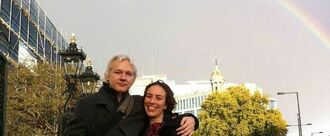
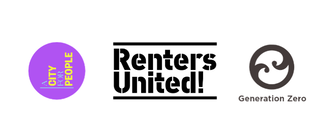
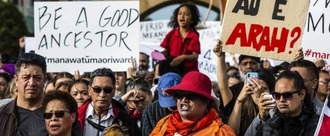
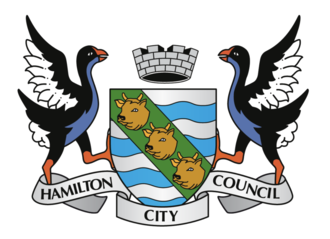

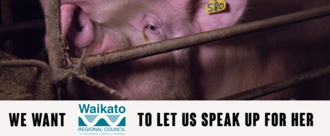
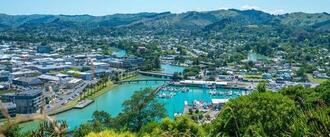.jpeg)

